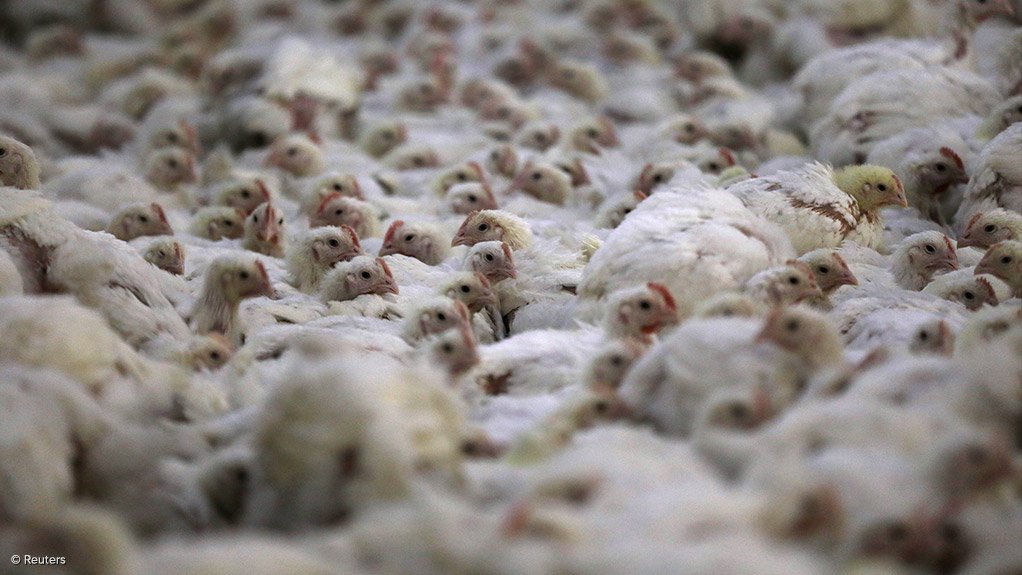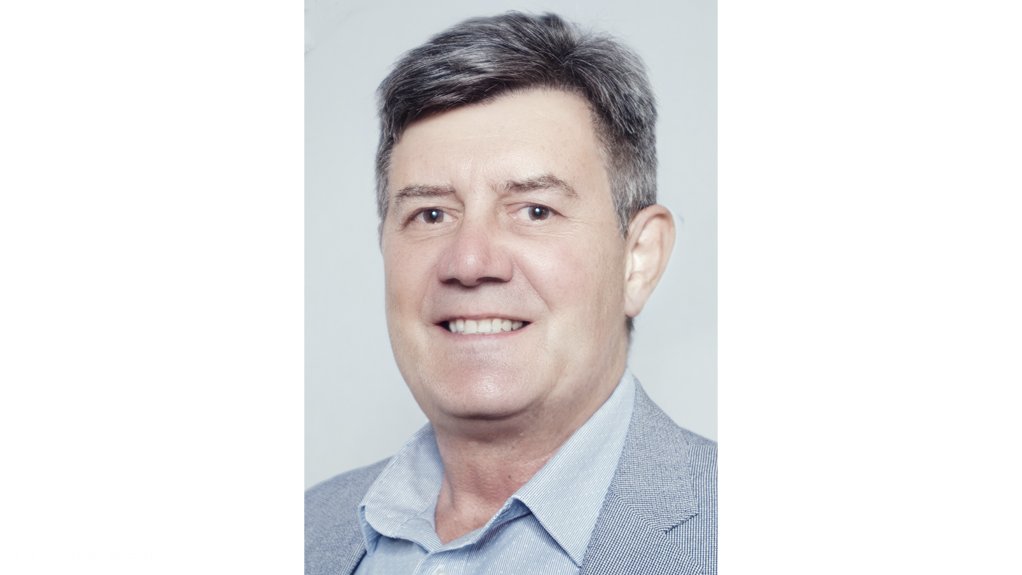Local poultry producers remain at odds with chicken importers on tariffs
In an ongoing dispute between chicken importers and local chicken farmers about lowering the prices of poultry products, trade movement FairPlay founder Francois Baird has challenged chicken importers to reveal their “substantial” profits and how much they have invested in expanding their industry and creating local jobs in South Africa.
Chicken importers, the Association of Meat Importers & Exporters (AMIE) have made calls for government to eliminate tariffs to enable them to import more volumes, stating that, with lower tariffs, the price of chicken on South African shelves would drop.
Baird notes that, for the past six years, chicken imports have averaged R6-billion a year.
“If chicken importers sold those consignments for only 10% more than they paid, and we think it is more because we believe their profits are substantial, then they are making R600-million a year, every year, for the past six years,” he states.
However, he questions what chicken importers have done with their profits for the local industry. “What have they done with R3.6-billion over the past six years? Expanded their business? Created South African jobs instead of buying imports which create jobs in Brazil and Europe? Or have they just enjoyed fat profits?”
Meanwhile, South African Poultry Association (SAPA) GM Izaak Breitenbach says, during negotiations for the Poultry Sector Master Plan, the local industry had committed to investment and expansion targets, and the creation of local jobs.
“The poultry industry has committed to investing R1.5-billion, of which R1.14-billion has already been completed. Most has already been spent on expanded production capacity,” he says.
As such, Breitenbach says efforts to revive South Africa’s poultry-producing sector have resulted in more than 1 300 jobs, with these figures being regularly reported to an oversight organisation and the Department of Trade, Industry and Competition which audits and verifies SAPA’s efforts.
Refuting claims by AMIE CEO Paul Matthew that poultry producers were making profits at the expense of the consumer, Breitenbach says a recent study by Genesis Analytics found that, for the past ten years, local poultry producers had not made enough profits to invest back into the industry.
He also dispels Matthew’s claim that chicken prices had risen by 17% in the past year, and his implication that producers were profiting while consumers suffered. In this regard, Breitenbach says poultry price increases have been forced by rising input prices, such as primarily for feed, and secondarily for transport and electricity.
Feed prices comprise 70% of chicken producer’s input costs, and therefore any increase in feed is going to have a negative impact on shelf prices.
“Feed prices went up by 20% and Brazil has raised chicken prices by 23%. Our increases are far lower than Brazil. Our industry is actively fighting [feed] price increases,” he states.
SMALL-SCALE VULNERABILITY
Amanda Mdodana – a small-scale chicken farmer based outside Middleburg in Mpumalanga, says that producing a chicken, from day one to day 42, for a small-scale farmer, costs about R38 to R40. “For us to sell a chicken for cheaper than that, which is what the imported chicken is doing, is almost impossible. It means that we would close down.”
She says the call for tariffs to be reduced or dropped “really worried” her and many other small-scale producers because such enterprises were already struggling to provide chicken that is competitively priced because of high input costs.
As a result of chicken dumping by importers in South Africa, Mdonda says she knows of 500 small-scale farmers, each employing a minimum of three people, who were at risk of closure as a result of deteriorating demand after failing to win over price-sensitive low-income consumers.
Baird, meanwhile, says scrapping tariffs will not benefit consumers, because the benefit will go to importers who have also not passed on the benefits of dumped chicken to consumers.
“The answer is to scrap value-added tax (VAT) on those chicken portions most bought by poor people - mixed frozen portions and whole chickens and to scrap VAT on chicken feed. European chickens do not eat South African maize, so this will also help local producers, particularly small farmers.
“Scrapping VAT on those specific chicken portions will directly benefit consumers – particularly poor consumers, and scrapping VAT on chicken feed will directly benefit local chicken producers, particularly small poultry farmers,” he adds.
Baird says FairPlay was founded in 2016 after determining that the deterioration of demand for South African chicken had a root cause in dumping. “We could not understand that because South Africa is among the top five or six most competitive poultry producers in the world, and yet the European Union – which is far below South Africa in price comparison – managed to import to sell chicken to South Africa at significantly lower prices.”
“This worries us because it puts pressure on local [small-scale] producers. When small farmers go out of business they no longer supply chicken in rural [areas] where transport makes it very expensive [especially for low-income earners] to go and buy chicken in [larger] town[s],” he says.
Since its founding, FairPlay has discovered an “entire ecosystem of predatory trade” – an ecosystem that meant that the very cheap prices by which chicken was imported were never passed on to consumers, claims Baird.
Breitenbach points out that dumping is classified by the World Trade Organisation as unfair trade. “The classical definition of this concept is simply that an exporting country is not allowed to sell product at a lower price in another country than in their own country. [Doing so] causes problems for the recipient country if product is dumped at unnecessarily low prices.”
However, without dumping, he says the South African poultry-producing market would have grown by about 30%, as dumped product was channelled out of the local market.
“During the past ten years, we have seen ten big [poultry] companies in South Africa closing because of dumping. We have seen job losses reported by Rainbow Chickens three years ago of more than 1 500 people being retrenched because of dumping,” says Breitenbach.
Article Enquiry
Email Article
Save Article
Feedback
To advertise email advertising@creamermedia.co.za or click here
Announcements
What's On
Subscribe to improve your user experience...
Option 1 (equivalent of R125 a month):
Receive a weekly copy of Creamer Media's Engineering News & Mining Weekly magazine
(print copy for those in South Africa and e-magazine for those outside of South Africa)
Receive daily email newsletters
Access to full search results
Access archive of magazine back copies
Access to Projects in Progress
Access to ONE Research Report of your choice in PDF format
Option 2 (equivalent of R375 a month):
All benefits from Option 1
PLUS
Access to Creamer Media's Research Channel Africa for ALL Research Reports, in PDF format, on various industrial and mining sectors
including Electricity; Water; Energy Transition; Hydrogen; Roads, Rail and Ports; Coal; Gold; Platinum; Battery Metals; etc.
Already a subscriber?
Forgotten your password?
Receive weekly copy of Creamer Media's Engineering News & Mining Weekly magazine (print copy for those in South Africa and e-magazine for those outside of South Africa)
➕
Recieve daily email newsletters
➕
Access to full search results
➕
Access archive of magazine back copies
➕
Access to Projects in Progress
➕
Access to ONE Research Report of your choice in PDF format
RESEARCH CHANNEL AFRICA
R4500 (equivalent of R375 a month)
SUBSCRIBEAll benefits from Option 1
➕
Access to Creamer Media's Research Channel Africa for ALL Research Reports on various industrial and mining sectors, in PDF format, including on:
Electricity
➕
Water
➕
Energy Transition
➕
Hydrogen
➕
Roads, Rail and Ports
➕
Coal
➕
Gold
➕
Platinum
➕
Battery Metals
➕
etc.
Receive all benefits from Option 1 or Option 2 delivered to numerous people at your company
➕
Multiple User names and Passwords for simultaneous log-ins
➕
Intranet integration access to all in your organisation





















